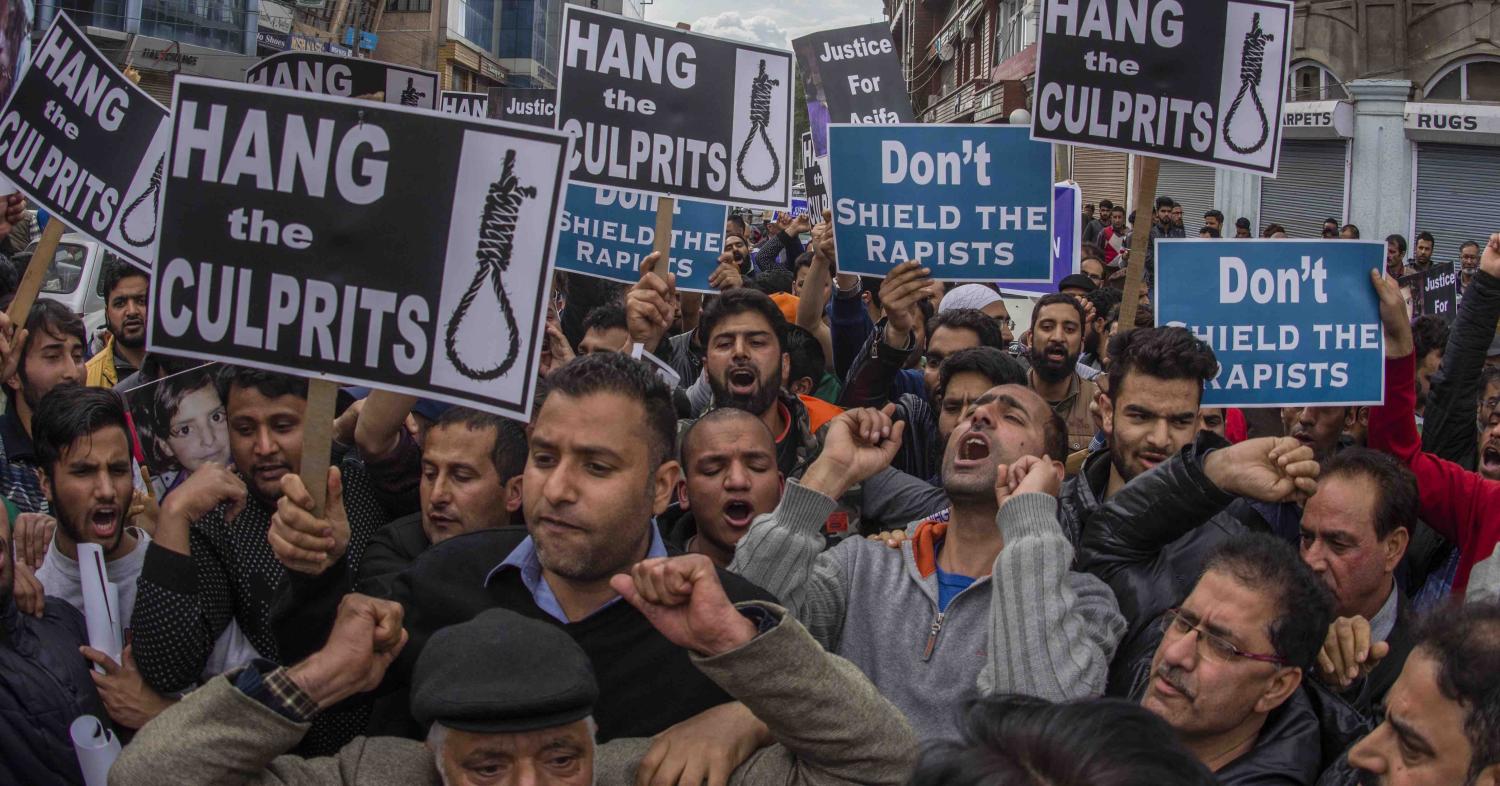Following a series of brutal attacks, and amid outcry across India demanding capital punishment for rapists, Prime Minister Narendra Modi this month signed an ordinance introducing the death penalty for anyone convicted of raping a girl under 12 years of age.
But this demand for extreme punishment dodges serious questions about the failure to protect women against sexual assault. Crime statistics suggest that 95% of rape victims in India are known to offenders. Sexual assault remains chronically under-reported in the country, often because a woman depends on the offender or is fearful of the case becoming public.
The focus on increased punishment also overlooks the yawning gap in India between what the law prescribes and what happens in reality. Even when the law is made stringent, there are plenty of loopholes in the process of administering justice that enable perpetrators to escape punishment.
Capital punishment is the easiest demand to make, but can be the most dangerous for rape victims because it provides a perverse incentive for rapists to become murderers. In this scenario, leaving no trace of crime is better than allowing the victim to live.
Across the world, the importance of creating a support system for victims, rather than merely increasing the severity of punishment for perpetrators, is acknowledged. Human Rights Watch has advocated for a system in which support is given to the victim immediately following a rape, and then throughout the traumatic process of filing a complaint, police investigations, and protracted court sessions. The search for justice, before the offender is convicted, can often become humiliating in itself.
Rape survivors in India often face other humiliations, such as waiting hours in police stations and hospitals for medical examinations due to staff shortages and indifferent attitudes. Evidentiary procedures are regularly haphazard, including insensitive interviews with victims by police, poor record-keeping that dilutes the strength of a case, and delayed forensic reports.
Too often a rape victim will have little confidence that justice will be served and the offender punished.
Yet another issue is the victim compensation scheme. Information about its application process and disbursements of funds are vague and ambiguous, creating roadblocks for victims from poor backgrounds. Ongoing cases incur high fees which poor victims and their families may not be able to afford. The high cost of legal proceedings not only deters victims from filing cases but also allows offenders to influence proceedings, or even bring them to a screeching halt.
Finally, the conviction rate for rape in India is abysmally low. According to a report published by the National Crime Records Bureau (NCRB), at 18.9% the conviction rate for crimes against women in 2016 was the lowest since 2007. Even if an increase in the reporting of assaults against women is achieved, a decrease in conviction rates disempowers women.
The pressing need is not for extreme punishment, but for an overhaul of the police forces and judicial system to make them more sensitive towards rape victims. Only introducing fast-track courts to expedite the judicial process, increasing conviction rates, and implementing proper witness and child-protection services will reverse rape culture in India.

